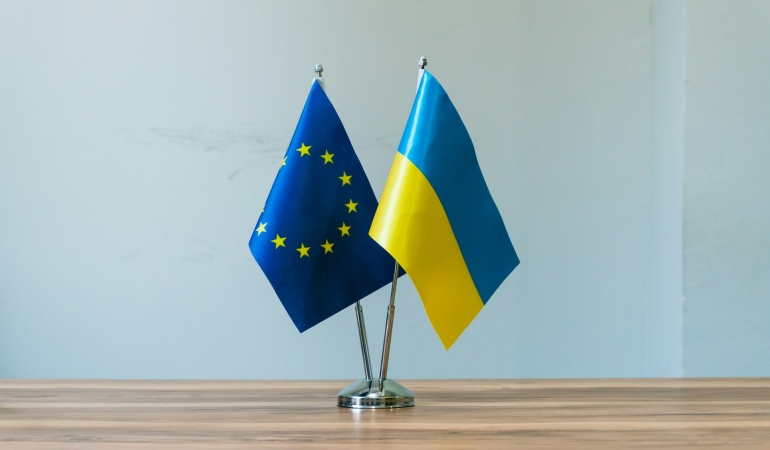News
EU proposes 19th sanctions package against Russia

The European Commission has presented its 19th package of sanctions against Russia, aimed at further limiting Moscow’s ability to finance and sustain its war in Ukraine. The measures, announced by Commission President Ursula von der Leyen and High Representative/Vice-President Kaja Kallas, build on previous rounds of restrictions and will require unanimous approval by EU Member States before entering into force.
The proposed sanctions target multiple sectors of Russia’s economy and focus on cutting revenue streams that support the war effort. Among the main measures are:
- Energy: the package foresees a full prohibition on imports of Russian liquefied natural gas (LNG) into the EU by January 2027. In addition, the crude oil price cap will be lowered to 47.6 USD, and 118 vessels from Russia’s “shadow fleet,” used to circumvent sanctions, will be added to the blacklist.
- Finance: the proposal includes a ban on transactions with Russian banks and financial institutions, including those operating through third countries. Restrictions will also cover cryptocurrency platforms and banks linked to alternative Russian payment systems.
- Trade and Technology: new export controls are set to apply to military-related items such as drones and geospatial technologies. Access to artificial intelligence and other advanced technologies will be restricted, while 45 Russian and third-country companies will be added to the list of entities facing export bans.
- Circumvention and Special Economic Zones: sanctions will be extended to major operators suspected of helping Russia evade restrictions, including entities in special economic zones tied to the war. Companies in third countries, such as refineries, oil traders, and petrochemical firms, could face asset freezes if found to be facilitating sanctions evasion.
- Human Rights Violations: the package also targets individuals allegedly involved in the deportation and indoctrination of Ukrainian children. The EU proposes to streamline procedures to make it easier to impose sanctions on persons and organisations implicated in such actions.
According to EU leaders, sanctions have significantly affected Russia’s economy, raising inflation, weakening access to finance, and reducing energy revenues. Since 2022, Russian oil revenues in Europe have fallen by around 90%. Officials argue that maintaining and expanding these measures is key to reducing Moscow’s capacity to fund military operations.
Von der Leyen highlighted that sanctions will be coordinated with G7 partners to strengthen global enforcement. She also referred to ongoing discussions on using immobilised Russian assets to finance support for Ukraine, including through a proposed “Reparations Loan.”
The sanctions package is subject to approval by all 27 EU Member States. If adopted, it would mark the 19th round of measures since the beginning of Russia’s full-scale invasion of Ukraine in February 2022. EU officials stress that sanctions will remain in place until Russia agrees to what they call a “just and lasting peace.
Last news
-

-
 18 November 2025
18 November 2025Council and Parliament reach agreement on the EU budget for 2026
-
 14 November 2025
14 November 2025Commission announces over €5 billion in funding for Erasmus+ 2026






